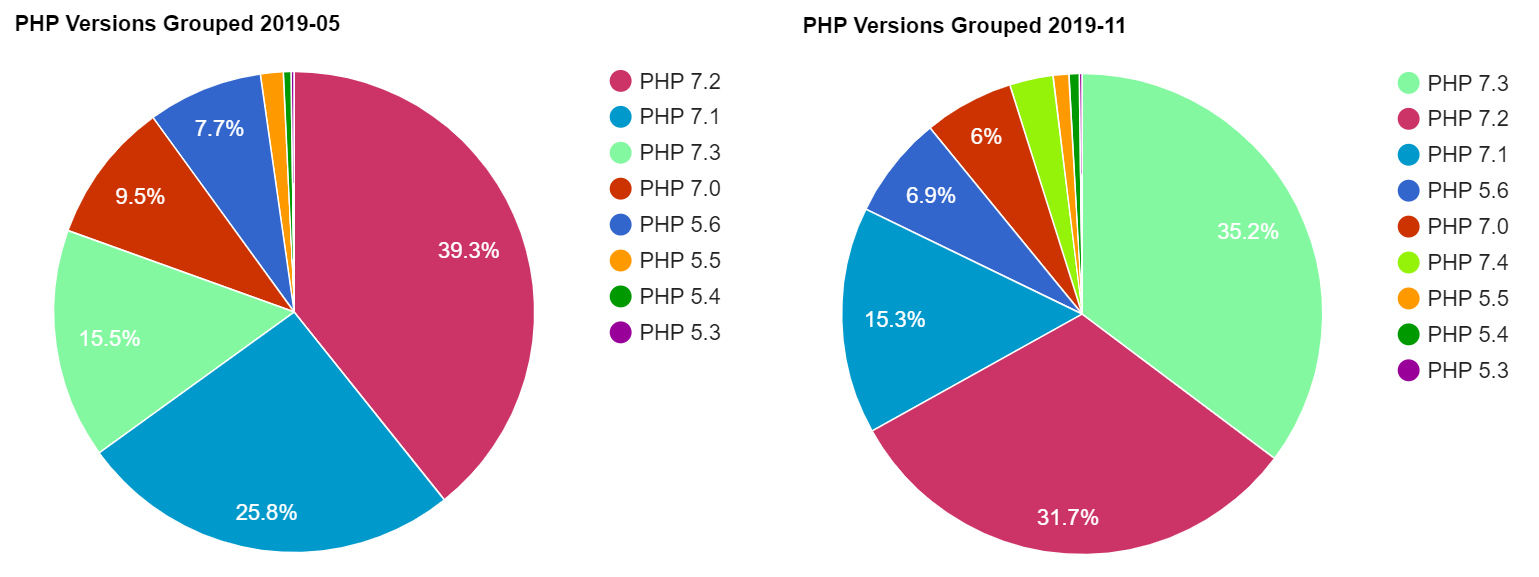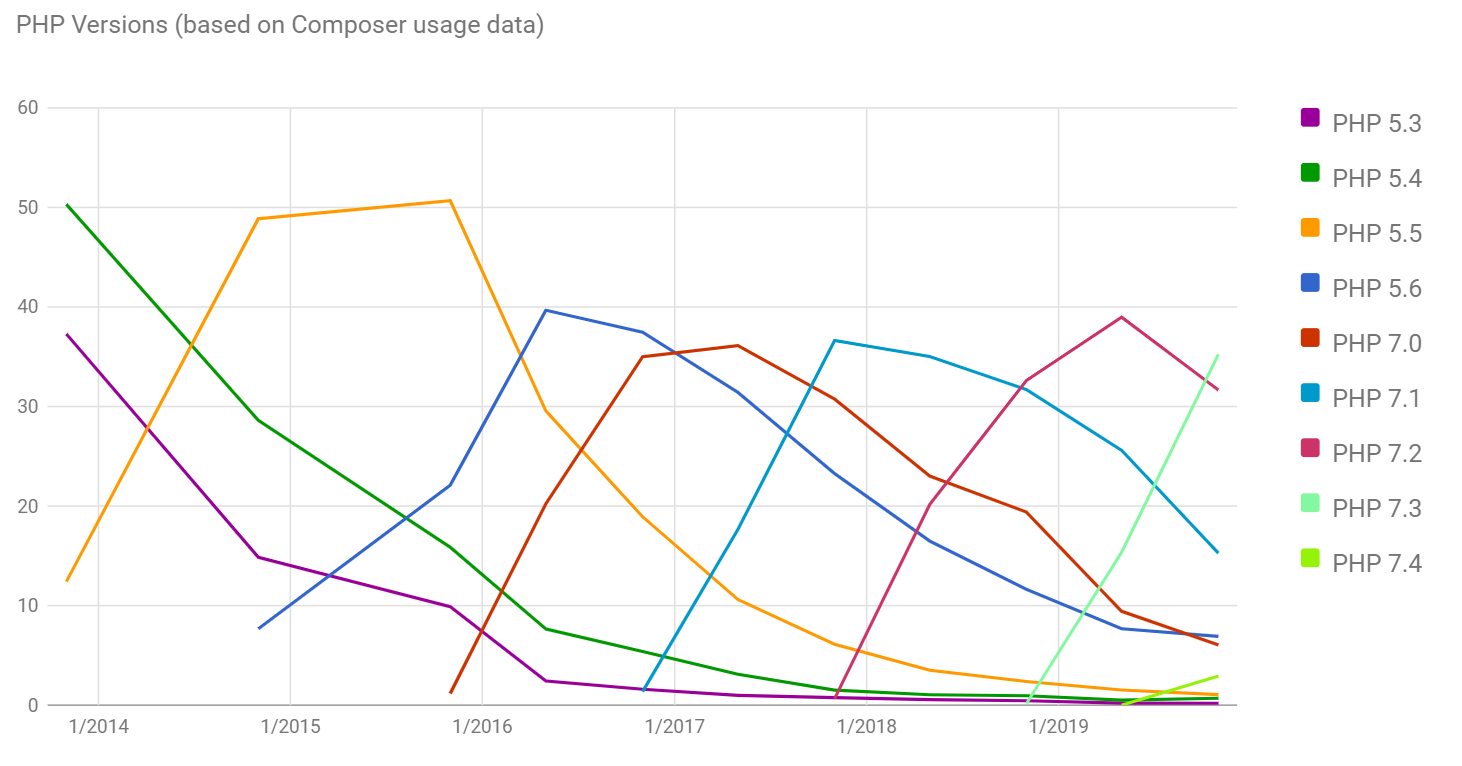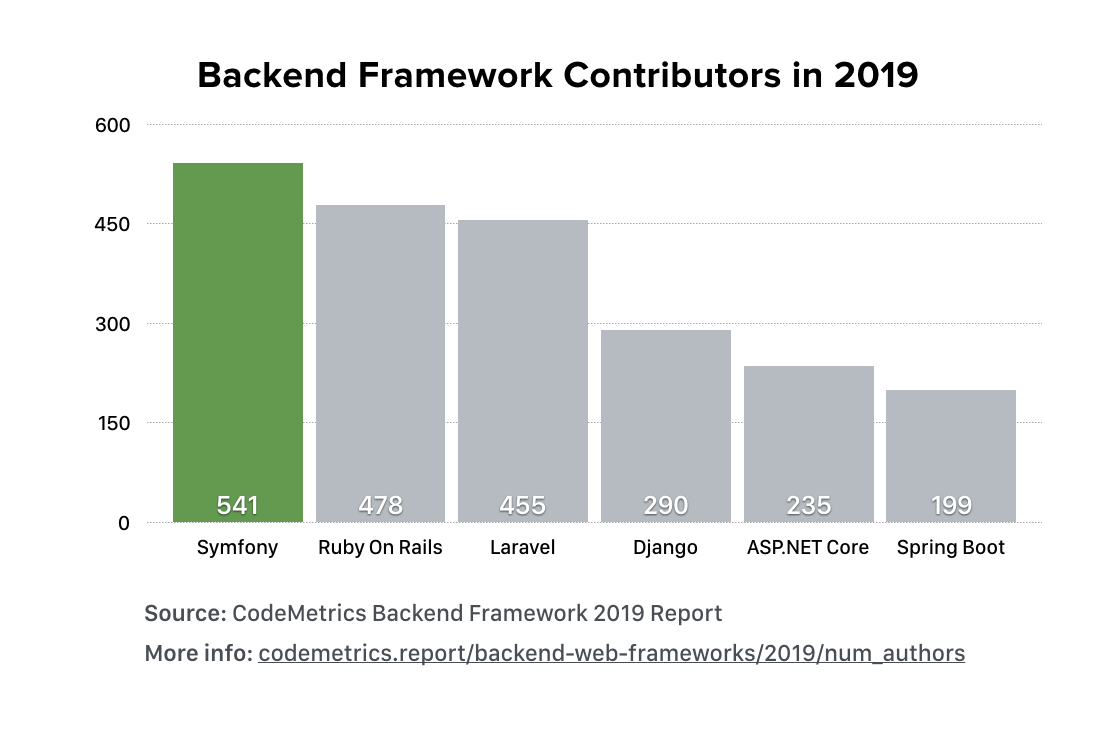What's new in PHP land? - Q1 2020
I co-organise the BrisPHP Meetup and at the start of every meetup I give a quick talk on recent news and other interesting things that have been happening in the PHP world. Recently, we’ve had a lot of progress on PHP 8.0 and lots of frameworks released new versions.
PHP
Let’s start with some PHP Version Stats released December last year by Jordi Boggiano.

We can see PHP 5.6 is still hanging around a bit, bit it has dropped a bit. PHP 7 versions are definitely taking the majority of the market, however with 7.2+ being the only supported versions, there is still a large number of projects on unsupported versions :’(.

Here it’s easy to see that PHP 7.4 is picking up just as fast as all previous versions that have been released.
PHP 8.0
There are already lots of other posts about the features in PHP 8.0, but I’m going to list the changes that have happened in the last few months.
Static return type
I use fluent methods a lot and not having the static return type
really gets me. Here’s an example:
<?php
interface FooInterface {
public function doSomething(): static;
}
class Foo implements FooInterface {
public function doSomething(): static {
// Do some things
return $this;
}
}
At the moment, we can’t need to use self as the return
type, which gives us a fatal error because
Foo::self !== FooInterface::self and is not compatible.
The static return type lets us benefit from late static
binding and makes this work as you would expect.
Take a look at the RFC for more information.
Allow $object::class
I also use FQCN’s a lot, to populate exception/log messages
and as keys in an array, etc. Since PHP 5.5 we’ve been able
to use Foo\Bar::class to get the FQCN, but if you have an
instance of Foo\Bar you must use \get_class($foo) instead.
<?php
$foo = new Foo\Bar();
// Works in 5.5+
var_dump(Foo\Bar::class);
var_dump(get_class($foo));
// Works in 8.0+
var_dump($foo::class);
Here’s a link to the RFC if you’re interested.
Stringable interface
Any object that implements __toString() in an 8.0 world
will implicitly impliment the stringable interface:
<?php
interface Stringable
{
public function __toString(): string;
}
This allows you to use the union type string|Stringable
when it becomes available in 8.0. The goal is that
eventually everyone will explicitly implement the interface
but for BC reasons, it will be automatically added during
compile time.
Take a peek at the RFC.
Frameworks
Symfony
Symfony claimed a big achievement last year. It has the most contributors out of any backend framework. Not in just PHP frameworks, but any backend framework, in any language.

Laravel
Laravel released version 6.5 with some new features:
- Added LazyCollection::remember()
- New string helpers
- Improvements to the QueryBuilder
- Added unless condition to Blade custom if directives
Phalcon
Phalcon released version 4.0.0 in December, with an impressive list of highlights:
- PHP 7.2 minimum version
- PHP 7.4 support
- Removed unsupported code
- PSR 7, 11, 13, 16, 17
- Rewrote all documentation
CakePHP
December also brought CakePHP 4.0.0 with a matching list of impressive highlights:
- PHP 7.2 minimum version
- Streamlined APIs by removing deprecated methods
- More typing/type hints
- Improved error messages
- A refreshed application skeleton
- New database types
- Middleware for CSP headers
- Improvements to the FormHelper
WordPress
Version 5.3 of WordPress is now live:
- PHP 7.4 support
- Date/Time component fixes
- Improved block editor
- Automatic image rotation
- Improved site health checks
Tools
Codeception
December was the month of 4.0, with Codeception also releasing version 4.0 which splits the core into modules allowing each module to upgrade individually and adds support for Symfony 5.
PHPUnit
PHPUnit 9 was released in Februrary which cleaned up a lot of old code. It only only supports PHP 7.3+, uses more strict types and removed a lot of old functions/options that have newer alternatives.
Xdebug
While it might not be 4.0, Xdebug did release version 2.9 in December. The main part of this release was to dramatically speed up code coverage by 250%!. That’s incredible.